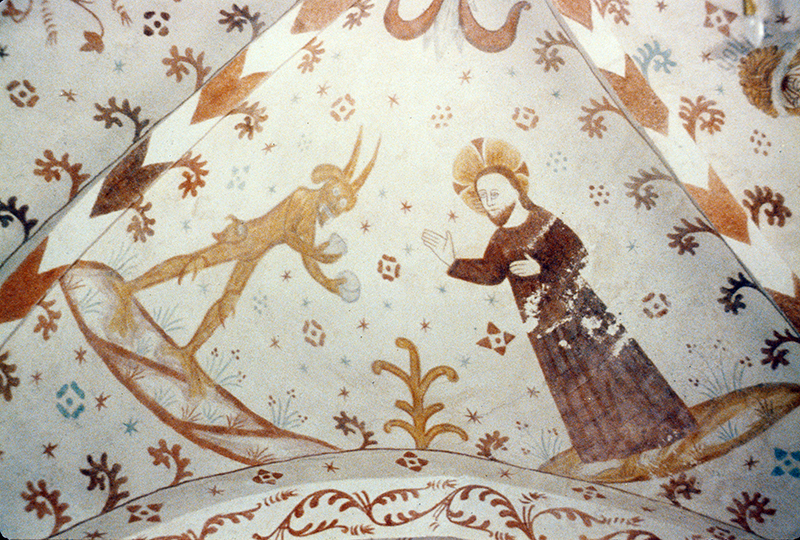Stones for Bread

What role should identity politics play in the life of a Catholic university—in its central activities of teaching and learning—and in its secondary aspects, its co-curricular activities and the presentation of itself to the larger world?
Much of a person’s self-understanding develops with increasing complexity over the course of that person’s life. The sources and expressions of this identity can come from nature and from culture. The former will substantially reflect the goodness of original creation but can also reflect the disordered effects of our sinful, postlapsarian reality. The latter, the cultural, in turn will be “what we make of nature.” These sources will also reflect the goodness of Creation and the effects of the Fall.
By extension, all of these dimensions of a person’s identity—both natural and cultural—will shape human communities, including those devoted to education. At the university level, each person will bring his or her complex identity to the mix of a sometimes-cacophonous, sometimes-harmonious community devoted to teaching and learning.
In this setting there are two distinguishable dimensions that connect all students, teachers, and administrators as human persons—a God-given nature bearing the gift of human dignity—and everything else. In a Catholic university that understands its own sources and heritage, that “everything else” will be given its proper place but a place that will always be secondary to the common nature that connects all human persons.
In contrast, within a larger society that has too often set aside belief in God and all claims to a universal human nature, there will be no acknowledgement of the primacy of God-given dignity and all that flows from our self-understanding of having “been made in the image and likeness of God.” Into such a vacuum, identity politics enters and takes up the center stage.

In a Catholic university, the secondary dimensions—the “everything else”—can play a role, depending on the relation of these secondary dimensions to the goodness of original creation. Given that caveat, what place such matters should take in the life of a university will need to be carefully considered. The Catholic intellectual and spiritual traditions provide the resources for this serious and sustained reflection.
Though it has happened more than one would like to admit, some Catholic universities have capitulated to cultural pressures, making identity politics—often wrapped in sentimental-progressive-religious language—the new founding principle, the beginning, the end, and the force that gives shape and meaning to their institution. Whatever part of the “everything else” that has become most fashionable in that news cycle becomes—perhaps in a moment of public-relations crisis—the animating principle of the community that was once founded for the pursuit of wisdom and its transcendent sources.
No less tragically, other Catholic universities have not capitulated fully but have compromised, allowing the categories, language, and images of identity politics to take up positions of prominence in their curriculum, in their student-affairs, and in their marketing. While not becoming full votaries of the new religion, they—rather than risk persecution—have still chosen the expediency of offering a pinch of incense to Caesar.
But if secondary matters of identity should not have primacy—in reality or at least as a public-relations shield— what should? Here the classical tradition of reflection on what it means to be human, a reflection that is both pre-Christian and Christian, can assist us.
In the Biblical account of human origins, we discover that “God created man in his own image, in the image of God he created him, male and female he created them.” According to Gaudium et spes, the human person is “the only creature on earth that God has willed for its own sake,” and according to the Catechism “he alone is called to share, by knowledge and love, in God’s own life. It was for this end that he was created, and this is the fundamental reason for his dignity.”
The Catechism also cites St. Catherine of Siena, “What made you establish man in so great a dignity? Certainly, the incalculable love by which you have looked on your creature in yourself! You are taken with love for her; for by love indeed you created her, by love you have given her a being capable of tasting your eternal Good.”
It is this status as a creature with inherent dignity—dignity springing from and ordered with purpose back to God—that is the foundation of the identities of all those who are part of a Catholic university. When set against the horizon of eternity and the transcendent communion with God who created us and calls us to communion with him, everything else is secondary.
This ordering of elements—our dignity as creatures in first place and everything else in second—is part of the good news of Catholic education. And this is one among many places where the Catholic vision of education can have an immediate, substantial, and transformative effect in the lives of students. If a student understands his or her worth to be rooted in a group that he or she has selected or that is naturally, historically, or culturally contingent, then that worth is constantly at risk. But if a student’s worth—her dignity—was given to her by a loving God who has made her in his image and created her for communion in this life and the next, then everything changes. There is now, perhaps for the first time, solid ground upon which to stand and to build a meaningful life that is secure.
Catholic universities can boldly proclaim: our beginning, our worth, and our ultimate purpose both share in the contingencies of time but simultaneously (and mysteriously) receive from God a stability that transcends time. Our identity is not contingent. No one can ever take away our dignity.
With these truths as part of our guiding constellation, a Catholic university can order its academic and student affairs to create a stable community of learning in which students, faculty, and staff can flourish in light of a God-given identity. And it need not bow—however slightly—in its policies, programming, public self-presentation and communication to those who would demand fealty to any ideology.
Rather than offering a religious version of a fashionable ideology, the Catholic university can share the good news about our God-given common dignity and identity with a larger culture that is dying for good news. This is what it means to carry out boldly the work of intellectual charity.
Giving an inch to an ideology that runs contrary to the good news of Catholic education—whether to placate a potentially hostile public or out of ignorance of the Catholic intellectual and spiritual traditions—is to give our students stones in place of bread.